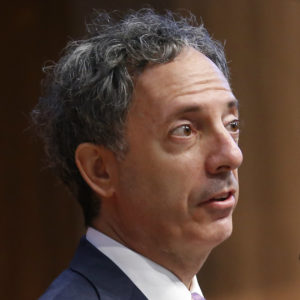Tom Wolfe’s The Bonfire of the Vanities
Read Tom Wolfe’s devastating, irresistible satire of urban and racial politics.
Winter 2021
Online Seminar Series
Saul Bellow’s final novel Ravelstein (2000) is a portrait of Allan Bloom, a teacher and philosopher best known for his 1987 critique of education, The Closing of the American Mind. For many years, Bellow and Bloom were both faculty at the University of Chicago, where they together taught classes on politics and literature. But Ravelstein is as much a novel of ideas as a memoir. As with Boswell to Johnson, or Plato to Socrates, the heftiest themes of human experience – politics, philosophy, religion, love, friendship, and death – are woven into this rich story of an outstanding thinker and teacher.
This seminar will meet online weekly on Wednesdays from 6 to 8 PM ET. All course materials will be provided. Fellows will receive a $200 stipend contingent upon participation in the course and completion of a brief response paper and evaluation.
Image courtesy of Free-Photos | Pixabay
Matt Continetti on conservative intellectuals

Matthew Continetti is resident fellow at the American Enterprise Institute, Prior to joining AEI, he was Editor in Chief of the Washington Free Beacon. His articles and reviews have appeared in The New York Times, The Wall Street Journal, and The Washington Post.

Matthew Continetti is the director of domestic policy studies and the inaugural Patrick and Charlene Neal Chair in American Prosperity at the American Enterprise Institute (AEI), where his work is focused on American political thought and history, with a particular focus on the development of the Republican Party and the American conservative movement in the 20th century.
A prominent journalist, analyst, author, and intellectual historian of the right, Mr. Continetti was the founding editor and the editor in chief of The Washington Free Beacon. Previously, he was opinion editor at The Weekly Standard.
Mr. Continetti is the author of three books, including, most recently, The Right: The Hundred-Year War for American Conservatism (Basic Books, 2022).
He has a B.A. in history from Columbia University.
Readings:
Recommended Listening:
Questions:
Readings:
Questions:
Readings:
Questions:
Readings:
Recommended Listening:
Questions:
Guest Speaker:
Readings:
Questions:

Matthew Continetti
Matthew Continetti is the director of domestic policy studies and the inaugural Patrick and Charlene Neal Chair in American Prosperity at the American Enterprise Institute (AEI), where his work is focused on American political thought and history, with a particular focus on the development of the Republican Party and the American conservative movement in the 20th century.

Ryan P. Hanley
Ryan Patrick Hanley is Professor of Political Science at Boston College. His research in the history of political philosophy focuses on the Enlightenment. He is the author of Our Great Purpose: Adam Smith on Living a Better Life and Love’s Enlightenment: Rethinking Charity in Modernity.

Jenna Silber Storey
Jenna Silber Storey is a senior fellow in the Social, Cultural, and Constitutional Studies department at the American Enterprise Institute (AEI), and co-director of AEI’s Center for the Future of the American University. She is concurrently an SNF Agora Fellow at Johns Hopkins University, and a research fellow at the Civitas Institute at the University of Texas at Austin. She also serves on the executive committee of the Alliance for Civics in the Academy.

Peter Berkowitz
Peter Berkowitz is the Tad and Dianne Taube Senior Fellow at the Hoover Institution, Stanford University. He studies and writes about, among other things, constitutional government, conservatism and progressivism in America, liberal education, national security and law, and Middle East politics.